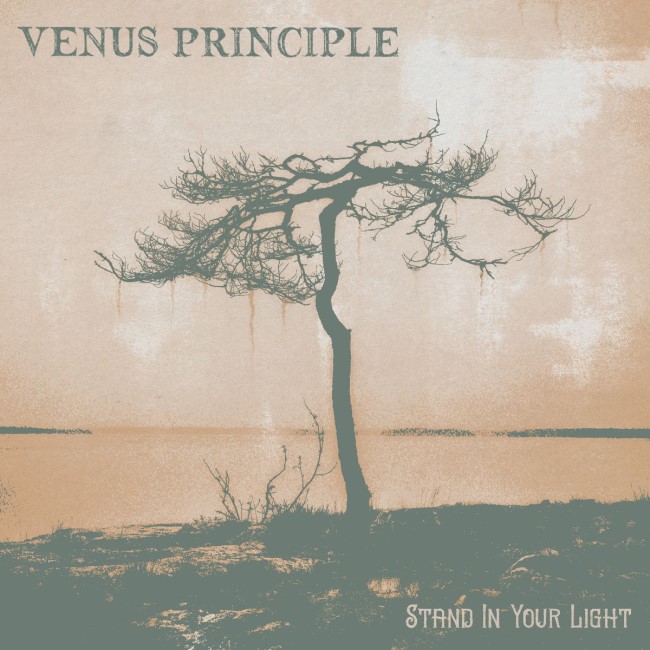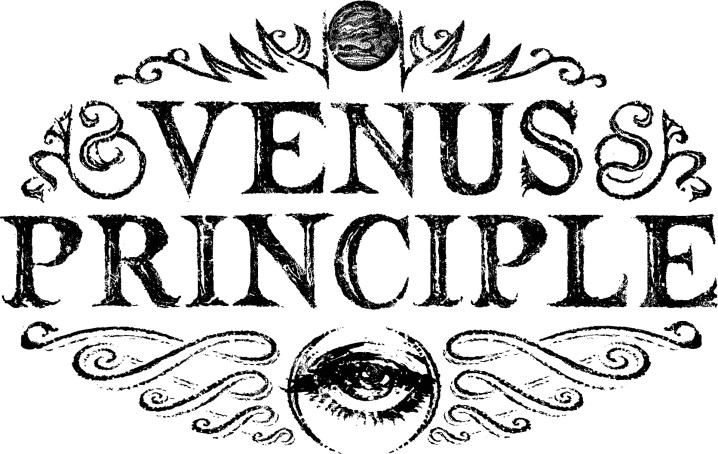
You can support Terra Relicta by donating! Please, do so, and thank you!

Venus Principle can be a new name on the scene, but regarding who's taking part in this musical venture, stay assured that nothing bad can come out. Formed in 2019, this dark psychedelic art-rock band consists of members from UK and Sweden that were or are still active in bands like Crippled Black Phoenix, At The Gates, Ison, Tacoma Narrows Bridge Disaster and Louise Lemón. A couple of weeks ago Venus Principle released their stunning multidimensional debut album titled Stand In Your Light. It's certainly not a coincidence that the album was released via one of the most trustworthy labels in the world when it comes to original dark music - Prophecy Productions. Although they are just at the starting point of an intended long career, Venus Principle emerges with a fully-fledged masterpiece. This album is bound to accomplish a most difficult feature by delighting adherents of both rock and metal. These hymns for the burdened and broken come audibly with the profound maturity of hard-earned experience from all the veteran musicians involved. One of the songwriters, vocalist and pianist, Daisy Chapman, took the time to answer some questions and in the end, here's an interesting in-depth interview.
Interview with:Daisy Chapman
Conducted by: Tomaz
Edited by: Jerneja
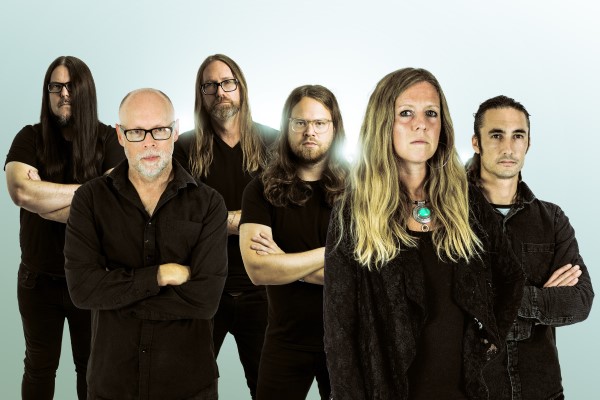 Tomaz: Hello Daisy. Before anything else, please explain how, in the first place, it came to the formation of the Venus Principle. Six renowned musicians from different countries making breathtaking music...
Tomaz: Hello Daisy. Before anything else, please explain how, in the first place, it came to the formation of the Venus Principle. Six renowned musicians from different countries making breathtaking music...
Daisy: I received a message from Mark in 2019 titled "Cheeky side project?". I didn't think much of it, other than the fact that Mark and Daniel were itching to create something together, and they might see if Jonas was interested too. At this point, Mark and Daniel were still in Crippled Black Phoenix, Jonas and I were not, and I had nothing better to do! It was never intended to be anything more than a jam, maybe a meet-up and a beer... but then 2020 happened... The start was very slow, and I honestly didn't think anything would come of it, but I think the March 2020 lockdown propelled us all into creativity. I was home with a 3-year-old and desperately needed a creative outlet, everyone else was stuck like the rest of the world, and demos started flying to and from our emails. By November of that year, we had a whole album of songs, and the recording process started across both countries.
Tomaz: And for those who don't know it yet, can you decipher who are the members of the Venus Principle? What's the musical history of each?
Daisy: Daisy Chapman (UK), vocals and piano. Long-standing solo career as a songwriter and vocalist, lots of touring in Europe plus four years with Crippled Black Phoenix. Daniel Anghede (SWE), vocals and guitar; founding member of Hearts Of Black Science and ISON and also the bassist for Draconian for a short while. Seven years with Crippled Black Phoenix. Jonas Stalhammer (SWE), guitar; At The Gates, five years with Crippled Black Phoenix. Mark Furnevall (UK), synths; ten years with Crippled Black Phoenix, long-standing synth player in Bristol, UK, with various bands. Pontus Blom (SWE), bass. The only member not to have been in Crippled Black Phoenix; plays with Louise Lemón. Ben Wilsker (UK), drums. Ten years with Crippled Black Phoenix plus Tacoma Narrows Bridge Disaster.
Tomaz: And some words about the band's name, Venus Principle. What does it stand for, and is there a deeper meaning or a story behind it? How did you come up with it?
Daisy: Writing an album is the easy part - finding a band name, as any group will tell you, is impossible! We scoured books, films, comics and came up with some great ones, which were then cancelled out after a quick check on discogs. A lot of great names are already taken by other bands we'd never even heard of, Venus Principle was one of the many names thrown out there, but this one just stuck. We have Jonas and Werner Herzog to thank for that.
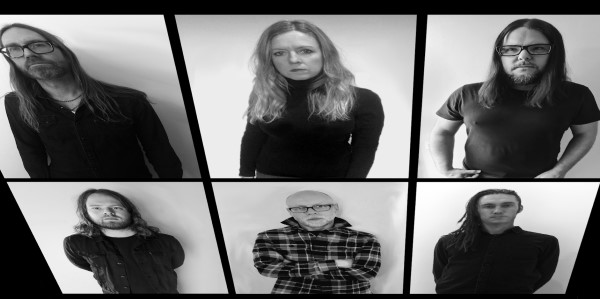 Tomaz: Surprisingly, Venus Principle got a record deal with an established label - Prophecy Productions - at the very start, before any official music was published. I guess that they were immediately amazed by the demos you sent out? Let me know how this collaboration started and how are you satisfied with their work so far?
Tomaz: Surprisingly, Venus Principle got a record deal with an established label - Prophecy Productions - at the very start, before any official music was published. I guess that they were immediately amazed by the demos you sent out? Let me know how this collaboration started and how are you satisfied with their work so far?
Daisy: When sending demos out to a label, the logical thing to do is start with who you know. So we approached our existing contacts - Season Of Mist was at the top of the pile. Of course, they saw too much of a conflict of interest with our close connections to Crippled Black Phoenix (who are still signed to them), but the networking snowball was set in motion, and Prophecy showed interest straight away. We're really happy with our relationship with them so far.
Tomaz: Now the amazing debut album Stand In Your Light is released. 11 songs of immense beauty and intense yet astounding songwriting. You must be proud of it. I suppose that everybody inside the band is satisfied with it. What are your feelings?
Daisy: Thank you! Yes, of course, we are really proud - not just of the music but of the achievement. At times it felt like the odds were against us with studio cancellations, travel restrictions etc. I never believed we could write and record an album without ever being in the same room. It's not the most efficient way to create, but we've proved it can be done. The writing process was therapy for us all too. 2020 was a hard year, as we know. I was really struggling to find time to be creative as my entire world was focused on parenting without being able to leave the house. Making time to hide away and write was immensely healing. Daniel was also dealing with his own demons at the time and poured a lot of that into the songs he wrote. Additional dramas surrounding the band's conception added fuel to the creative process making us more determined to succeed. With four core songwriters in one band, the music was always going to be varied, and I think our individual styles of writing really shine through in the compositions.
Tomaz: Do you consider Venus Principle a proper band to make a longer story with more music and albums, or it's just a one-album project?
Daisy: We are most definitely a proper band! We have no intention of this album being a one-off project. We have only just begun!
Tomaz: I'm glad to hear that. Have you ever tried to categorize the Venus Principle music? What kind of description do you think would be the best?
Daisy: It's a hard question and one we leave up to reviewers... melodic prog?
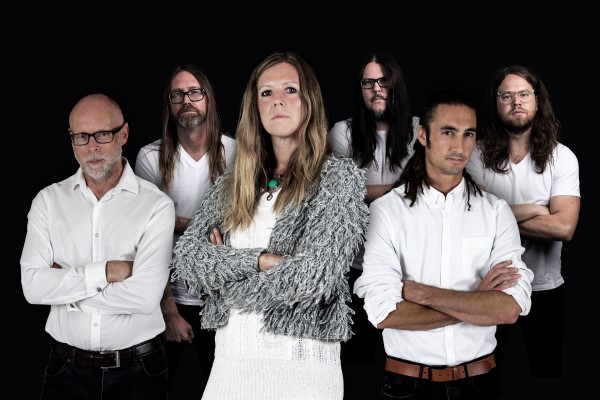 Tomaz: The sound on the album is quite an original one. On the crossroads of two musical eras, the 70s and modern-day. It has the necessary depth and clearness, but it still sounds dirty enough. How did you succeed that, and how are you satisfied with it?
Tomaz: The sound on the album is quite an original one. On the crossroads of two musical eras, the 70s and modern-day. It has the necessary depth and clearness, but it still sounds dirty enough. How did you succeed that, and how are you satisfied with it?
Daisy: I don't know if any of what you say was actually planned. It's just what happens when a few musical minds come together. I know I write very clean and need someone who plays the guitar to dirty up what I do - hence "The Lord He Giveth". Jonas can write a great riff, and he pieced together the end section of Mark's "Days Of Summer", giving it the depth it needed. And Daniel's songs perhaps required my clean and melodic brain, which I added with harmonies. We have all complimented each other's writing styles which is how we came to the finished result.
Tomaz: How was working with Daniel on those beautiful vocal duets? Ok, you already worked together in Crippled Black Phoenix, and Daniel has experiences from ISON, but still - Venus Principle is different...
Daisy: Wonderful. Harmonies are one of my favourite musical elements, and we took such pleasure in weaving our vocals together. We had a very little creative license in Crippled Black Phoenix as it wasn't our music, so having control of our own sound with Venus Principle has allowed us to really work together (albeit not in the same room) and come up with counter melodies and duets that we were always desperate to do. Our voices complement one another so well; there's a natural blend that you can't create artificially - it's a gift.
Tomaz: I find the front cover artwork pretty vintage, like being taken from the 70s/80s. It even slightly reminds me of the back cover of U2's Joshua Tree... Was it intentionally or by coincidence?
Daisy: We wanted the logo to look embossed, like the front of an old book. Joshua Tree wasn't mentioned - but the crumpled style imagery is subliminally nodding to old LP artwork printed freshly on a new CD case. We have to move with the times after all. I'm sure those who only buy music in digital forms don't even look at artwork anymore. We do it for those who like to buy it in its physical format.
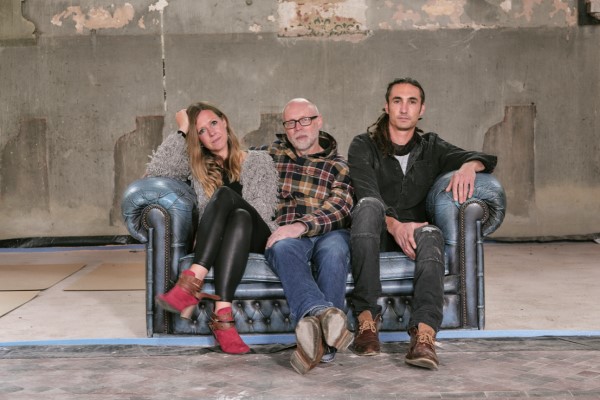 Tomaz: Since you mentioned it, I think albums like Stand In Your Light are not meant for digital consumption. How do you try, if even, to encourage people to get physical editions of your album; to get the full experience out of it?
Tomaz: Since you mentioned it, I think albums like Stand In Your Light are not meant for digital consumption. How do you try, if even, to encourage people to get physical editions of your album; to get the full experience out of it?
Daisy: Unfortunately, it's just the way of the world now. We can't try and change the way people consume music if they are moving with the times. The best we can do is continue to offer music across all platforms and mediums. Some have moved back towards analogue after noticing that the digital experience leaves them without lyrics and artwork, but ultimately, people will just do what they want.
Tomaz: Since almost all of the Venus Principle members played together in Crippled Black Phoenix, has the idea to form a new band appeared before or after you left Crippled Black Phoenix?
Daisy: Myself and Jonas had already left. Mark and Daniel were leaving to stay on as deps or session artists if needed. They wanted to continue to create music together, and it made sense to ask friends to join them - friends, who just happened to once be in Crippled Black Phoenix.
Tomaz: Can we expect to see Venus Principle playing live anytime soon? If there's already something booked, can you reveal where and when will you play?
Daisy: Pandemic backlog is still clogging up venues across Europe. All those cancelled tours are finally on the road now, so we've had to wait for available dates. We will definitely play live - we can't wait to all be in the same room together for the first time (ever!) and play music. 2023 will definitely see some shows in Europe.
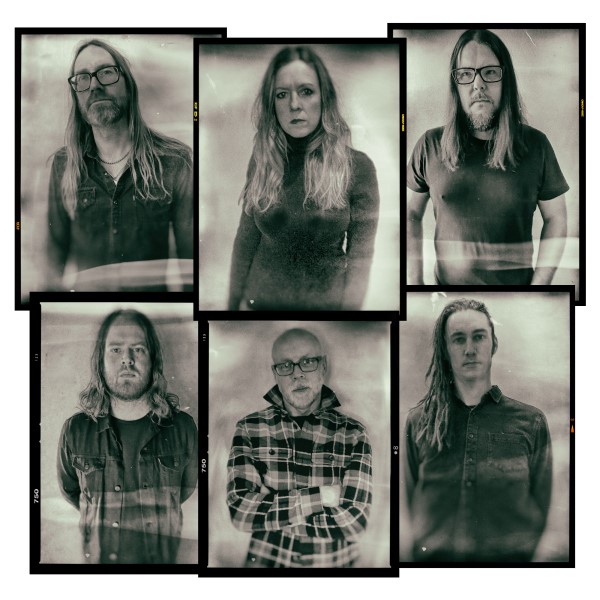 Tomaz: You mentioned a couple of times the song you wrote, "The Lord He Giveth And He Taketh Away". I believe that it means a lot to you. In the song title, there's a reference to the biblical story of Job. You also used the archaic words in the title... It's obviously one of the songs that stands out...
Tomaz: You mentioned a couple of times the song you wrote, "The Lord He Giveth And He Taketh Away". I believe that it means a lot to you. In the song title, there's a reference to the biblical story of Job. You also used the archaic words in the title... It's obviously one of the songs that stands out...
Daisy: I've probably mentioned it the most because it's the one I wrote from scratch and had the most creative control over, but it's also a favourite of mine on the album too. Actually, the main vocal riff that includes that line was a recording on my phone from about 2014. As most writers do, I sing ideas into the voice recorder and pick through them when I'm in the mood for writing or developing. That one sat on my phone for years because I knew it needed a band behind it. It wasn't going to work as a solo work, and I honestly thought it might end up being canned. But as soon as Venus Principle started writing, I dug it out and completed the song, knowing that Jonas would make it as heavy as I'd hoped when I first wrote the main theme. I am not particularly religious, but I find religious writing very poetic and interesting to quote. The line "the lord he giveth and he taketh away" reminds us that nothing is forever, be grateful for what you have because you never know when it can be taken away. It's a good mantra to live by.
Tomaz: Since the songs were done over a year ago, I expect that you are already working on something new. If yes, will you continue in the same direction, or can we expect some surprises?
Daisy: I think at the moment we are keen to develop the existing songs for the stage. We've never played them all together; it will be like re-learning them all. The sound will inevitably be different from the album, and we will have to spend time together in a rehearsal space to adapt the songs for just six instruments and two voices. So our main focus is to play live and tour this album. I'm sure the voice recorder will start filling up with new ideas soon, though. I personally like to let an album have a life span before replacing it with new music. Let's see where it goes.
Tomaz: Now, something about your solo career. If I'm not mistaken, you released your last album, Good Luck Songs, in 2017. Are you working on something new, and when can we expect to hear it?
Daisy: Yes, I have been writing songs for the last year for a new album and am currently crowdfunding for it through my website. I operate very differently as a solo artist and fund everything myself, which means it all takes time, and I have never rushed a new release. I have some European shows booked for autumn and July, which are always fun - as a duo with my violinist Sue Lord. That said, I really hope to have a new album in the early part of next year. And here's some not-yet-released info - the album will be called She Took Flight.
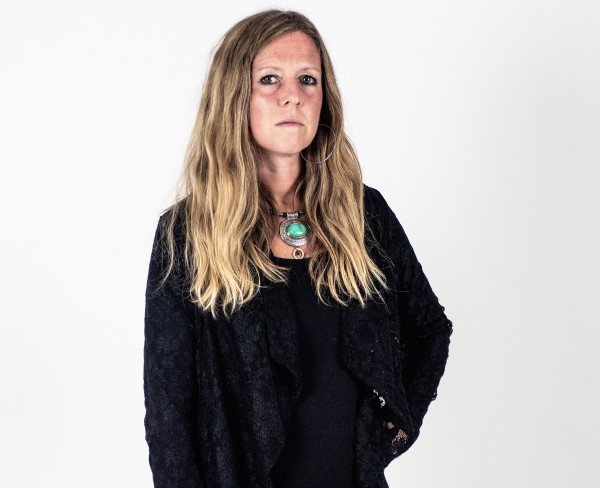 Tomaz: Do you prefer to write music as a solo artist or as a part of a band? Where are the main differences?
Tomaz: Do you prefer to write music as a solo artist or as a part of a band? Where are the main differences?
Daisy: They are both very different processes. It's great with the band because I can get so far and then pass it on to someone else to complete, never knowing what's going to come back! Writing for myself, I have to do the whole thing, and I tend to spend so much time mulling over different endings to songs and find it really hard to make a decision as to where it's going to go with no one else to bounce ideas off. That said, a finished Daisy Chapman song always feels like a great achievement, and then I go off and write string quartet parts for it to add to the sound. They're both really great ways of working, and I'm glad to have it both ways.
Tomaz: Besides music and family, what are your other interests in life, the things that enthuse you? Tell me more if I'm not too intrusive about your personal life.
Daisy: Family life comes first. My daughter is six, and at school, we have a dog that I love taking for long walks on my own through the woods and fields and as a family too. Since moving to the countryside, I've started running and love disappearing along canal paths listening to podcasts. I've run four half marathons now. Travel used to be something I adored, and I miss it - hopefully touring will provide more of an opportunity for that. There's also a great art-house cinema in Trowbridge where I live and go there most Friday nights to watch foreign films then discuss over a beer with friends afterwards. I also work part-time for a music charity that brings live music to vulnerable groups across Wiltshire. It's very rewarding work. And I love just being outside. I write to you now from my garden, listening to the birds with the dog on my lap.
Venus Principle links: Official website, Facebook, Instagram, Prophecy Productions
Daisy Chapman links: Official website, Facebook
